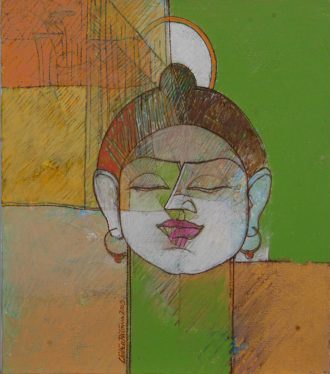
Twenty Questions
“I press my forehead against the cold glass as the bus moves onward, the sliver of land between highways, the dogs, it all collapses into nothing.” Elena Robidoux writes of disillusionment in Peru.
Read More
“I press my forehead against the cold glass as the bus moves onward, the sliver of land between highways, the dogs, it all collapses into nothing.” Elena Robidoux writes of disillusionment in Peru.
Read More
“Each re-telling of those extraordinary tales of derring-do was invested with a sense of immediacy and cinematic detailing.” Chitralekha Basu concludes her memoir on the literature that shaped her.
Read More
“Let’s transform the self-defensive stance of ‘I’m not racist’ into a widespread, activated stance of ‘I’m committed to undoing racism in myself and in my culture.'” Bethany Webster discusses racism and the feminine.
Read More
“Ma got totally exasperated with the fights, which had become ritual, she would have with me over who got to read Desh first.” Part II of Chitralekha Basu’s literary childhood.
Read More
“I had an insatiable appetite for stories and would badger my parents to read from the books I had accumulated.” Chitralekha Basu reflects on the literature that shaped her writing.
Read More
“Following every international or domestic terrorism act committed by a Muslim, the American-Muslim community divides under pressure…” Sharmin Sadequee investigates the meaning and repercussions of collective responsibility.
Read More
“We all lived in a hostel on Green Avenue in Bed-Stuy. My days were spent cleaning the rooms and making.” Michael E. Wilson Jr. writes of life and love at an international hostel in New York City.
Read More
“She couldn’t see very well, but her eyes still lit up whenever she smiled. Her skin was soft too, and wrinkly, a little bit like a tissue. ” Laney Burrell remembers three great-grandmothers, from three different Native American tribes.
Read More
“Society also plays a role by responding to an artist’s work, and their reaction — whether positive or negative, influences the artists’ decision to make more of such work or not.” Shameen Arshad interviews Shanzay Subzwari.
Read More
“So on they talked freely, in their ignorant western European way, and though Moji seemed fine I knew why he didn’t speak.” Dakota Hall writes about passports and what some can do, while others cannot.
Read More